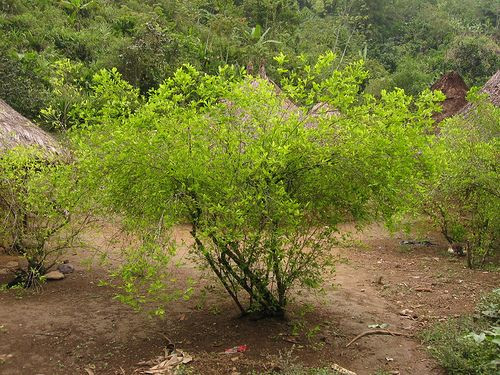
A report issued by the White House on Monday suggests that Peru has overtaken Colombia as the top producer of pure cocaine in Latin America. According to NBC News, Gil Kerlikowske, the director of the Office of National Drug Control, said on Monday the cocaine production in Colombia was down 72 percent. "Potential production of pure cocaine in Colombia is down to 195 metric tons (in 2011) from 700 metric tons in 2001, the lowest production level since 1994," Kerlikowske said in a speech.
Kerlikowske said that these numbers show the first time Colombia ranked below Bolivia and Peru in Cocaine production. From 1980 through the 1990s Peru was the leading producer of Cocaine before Colombia grabbed the torch. The White House and the United Nations have people on the ground monitoring the seizures of illegal drugs, which is where the statistics for their annual drug reports come from. The Director of the White House office called the reduction in Colombia's production "historic." He cited "strategic pressure across more than one administration," as the reason for the production drop.
Bolivia's numbers have also dropped 7 percent. Not as significant as the 72 percent drop in Colombia but some are calling it better than nothing. The exact figures for the cocaine production in Peru have not yet been released. The Global Post, however, did speak with anti-drug czar Carmen Masias who told them the numbers in Peru would not show "big changes." Ricardo Soberon preceded Masias in her position and blames Peru's new found "Cocaine King" title on what he calls the government's bad decisions.
"These figures are a clear indication the government is making incorrect decisions," Soberon said. Soberon now runs the Center for Research into Drugs and Human Rights based in Lima. He told voxxi.com he believes the President of Peru, Ollanta Humala, has made numerous mistakes that allowed the drug trade to thrive in his country. Soberon believes one of the biggest mistakes made in Peru was the forced extermination of the coca plant. This forced elimination has hit crop growers hard on what is already a limited income.
Instead Soberon believes his government should adopt the Bolivian approach to fighting drugs. In Bolivia the government has been persuading growers to voluntarily switch from growing coca to coffee or cocoa. It has been reported that this approach has been showing results. The hectares of coca grown in Bolivia in 2011 fell 12 percent.
More From Latin Times:
Missing British Girls Cocaine Arrest: Michaella McCollum Connolly And Melissa Reid Face Up To 25 In Peru Jail
Quinoa Farmers In Peru And Bolivia Benefit From Rise In Popularity Of The Grain, Say New Reports
© 2024 Latin Times. All rights reserved. Do not reproduce without permission.



